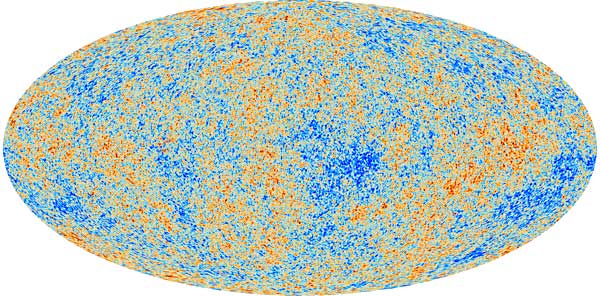
It’s supposed to be the earliest photo of the Universe. Red represents areas of the sky that are slightly warmer and blue represents areas that are slightly colder. But just how was this image captured?
The image is courtesy of the Planck telescope, which was launched by the European Space Agency (ESA) in 2009. The Planck satellite scans the sky for the cosmic microwave background (CMB), radiation that dates back to about 380,000 years after the Big Bang. This is apparently the most accurate data ever recorded from the radiation left over from the milliseconds after the Big Bang.
So the image was not captured optically. Instead it is a visual representation of tiny temperature fluctuations in the radiation across the entire sky, red representing regions about 1 part in 100,000 hotter than the average temperature, and blue represents slightly colder regions.
via sciencenews
